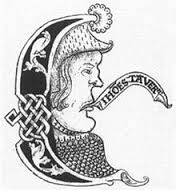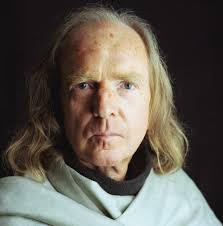January 2014.John Taverner and John Tavener.John Taverner, born around 1490 (the exact date is unknown), was one of the most significant composers of the early English Renaissance.John Dunstaple preceded him by 100 years, but Dunstaple exerted more influence on the burgeoning Burgundian music school than on the English one.On the other hand, many composers followed Taverner: Thomas Tallis, 15 years his junior, William Byrd (born around 1540), then Thomas Morley(1557), John Dowland and John Bull, both born around 1563, and many more.Taverner lived and worked during the reign of Henry VIII and the English Reformation and, as a religious composer, was strongly affected by changes that the Church of England underwent during that period.In 1526 Taverner went to Oxford to become the master of choir of the Christ Church College, then called Cardinal College, which had been recently organized by Cardinal Wolsey.Wolsey, for a time a highly influential advisor to the King, became a major patron; in one episode he saved Taverner from accusations of concealing “heretical books,” noting that Taverner was "but a musician."Wolsey fell into disfavor with the King and died in 1530 while on trial.Taverner left Oxford the same year.Later he was hired by Thomas Cromwell, the chief minister to King Henry and one of the major leaders of the Reformation.With Cromwell he took part in the dissolution of the monasteries; it seems that at that time he stopped composing altogether, so practically all the music he wrote was Catholic and pre-Reformation.Taverner wrote eight Masses, several Magnificats, and a large number of motets.One of his most important masses was Gloria Tibi Trinitas, from which the style of instrumental polyphonic music, called In nominee, was born.All English Renaissance composers we mentioned above, and even the early Baroque composers up to Henry Purcell, wrote in this style.Here it is, performed by the Tallis Scholars, Peter Phillips directing.The picture above, taken from a "partbook" (a book of sheet music), containing Missa Gloria Tibi Trinitas, may be the likeness of John Taverner.
The English composer Sir John Tavener died recently, on November 12, 2013.He always claimed to be a direct descendant of John Taverner, even though their names were spelled slightly differently.Tavener was an unusual composer in that he wrote mostly religious music, and an unusual person: an Englishman who converted to Orthodox Christianity.Tavener was born in London on January 28th, 1944.When he was 12, he heard Stravinsky’s Canticum Sacrum, which, as he later said, “made me want to be a composer.”In 1968 Tavener wrote a cantata The Whale, based on the story of Jonah; it was widely noted.The Celtic Requiem was written in 1970.Benjamin Britten thought of it highly enough to persuade the Covent Garden to commission Tavener an opera (Thérèse was staged only in 1979 and was not very successful).In 1977 he wrote another opera, A Gentle Spirit, based on a story by Dostoevsky. The libretto was written by the Irish playwright Gerard McLarnon, a convert to Russian Orthodox Christianity.That same year Tavener also became a convert.Subsequently, Tavener wrote a number of pieces based on Orthodox Christian writings and Russian literature.The Protecting Veil (1988) for cello and strings, was suggested and popularized by the cellist Steven Isserlis.His Song for Athene was set to a text written by a Russian Orthodox abbess.It became very popular after it was performed during Princess Diana’s funeral in 1997.You can listen to it here, performed by the King's College Choir, Cambridge, Stephen Cleobury conducting.
John Taverner and John Tavener 2014
January 2014. John Taverner and John Tavener. John Taverner, born around 1490 (the exact date is unknown), was one of the most significant composers of the early English Renaissance. John Dunstaple preceded him by 100 years, but Dunstaple exerted more influence on the burgeoning Burgundian music school than on the English one. On the other hand, many composers followed Taverner: Thomas Tallis, 15 years his junior, William Byrd (born around 1540), then Thomas Morley (1557), John Dowland and John Bull, both born around 1563, and many more. Taverner lived and worked during the reign of Henry VIII and the English Reformation and, as a religious composer, was strongly affected by changes that the Church of England underwent during that period. In 1526 Taverner went to Oxford to become the master of choir of the Christ Church College, then called Cardinal College, which had been recently organized by Cardinal Wolsey. Wolsey, for a time a highly influential advisor to the King, became a major patron; in one episode he saved Taverner from accusations of concealing “heretical books,” noting that Taverner was "but a musician." Wolsey fell into disfavor with the King and died in 1530 while on trial. Taverner left Oxford the same year. Later he was hired by Thomas Cromwell, the chief minister to King Henry and one of the major leaders of the Reformation. With Cromwell he took part in the dissolution of the monasteries; it seems that at that time he stopped composing altogether, so practically all the music he wrote was Catholic and pre-Reformation. Taverner wrote eight Masses, several Magnificats, and a large number of motets. One of his most important masses was Gloria Tibi Trinitas, from which the style of instrumental polyphonic music, called In nominee, was born. All English Renaissance composers we mentioned above, and even the early Baroque composers up to Henry Purcell, wrote in this style. Here it is, performed by the Tallis Scholars, Peter Phillips directing. The picture above, taken from a "partbook" (a book of sheet music), containing Missa Gloria Tibi Trinitas, may be the likeness of John Taverner.
one. On the other hand, many composers followed Taverner: Thomas Tallis, 15 years his junior, William Byrd (born around 1540), then Thomas Morley (1557), John Dowland and John Bull, both born around 1563, and many more. Taverner lived and worked during the reign of Henry VIII and the English Reformation and, as a religious composer, was strongly affected by changes that the Church of England underwent during that period. In 1526 Taverner went to Oxford to become the master of choir of the Christ Church College, then called Cardinal College, which had been recently organized by Cardinal Wolsey. Wolsey, for a time a highly influential advisor to the King, became a major patron; in one episode he saved Taverner from accusations of concealing “heretical books,” noting that Taverner was "but a musician." Wolsey fell into disfavor with the King and died in 1530 while on trial. Taverner left Oxford the same year. Later he was hired by Thomas Cromwell, the chief minister to King Henry and one of the major leaders of the Reformation. With Cromwell he took part in the dissolution of the monasteries; it seems that at that time he stopped composing altogether, so practically all the music he wrote was Catholic and pre-Reformation. Taverner wrote eight Masses, several Magnificats, and a large number of motets. One of his most important masses was Gloria Tibi Trinitas, from which the style of instrumental polyphonic music, called In nominee, was born. All English Renaissance composers we mentioned above, and even the early Baroque composers up to Henry Purcell, wrote in this style. Here it is, performed by the Tallis Scholars, Peter Phillips directing. The picture above, taken from a "partbook" (a book of sheet music), containing Missa Gloria Tibi Trinitas, may be the likeness of John Taverner.
The English composer Sir John Tavener died recently, on November 12, 2013. He always claimed to be a direct descendant of John Taverner, even though their names were spelled slightly differently. Tavener was an unusual composer in that he wrote mostly religious music, and an unusual person: an Englishman who converted to Orthodox Christianity. Tavener was born in London on January 28th, 1944. When he was 12, he heard Stravinsky’s Canticum Sacrum, which, as he later said, “made me want to be a composer.” In 1968 Tavener wrote a cantata The Whale, based on the story of Jonah; it was widely noted. The Celtic Requiem was written in 1970. Benjamin Britten thought of it highly enough to persuade the Covent Garden to commission Tavener an opera (Thérèse was staged only in 1979 and was not very successful). In 1977 he wrote another opera, A Gentle Spirit, based on a story by Dostoevsky. The libretto was written by the Irish playwright Gerard McLarnon, a convert to Russian Orthodox Christianity. That same year Tavener also became a convert. Subsequently, Tavener wrote a number of pieces based on Orthodox Christian writings and Russian literature. The Protecting Veil (1988) for cello and strings, was suggested and popularized by the cellist Steven Isserlis. His Song for Athene was set to a text written by a Russian Orthodox abbess. It became very popular after it was performed during Princess Diana’s funeral in 1997. You can listen to it here, performed by the King's College Choir, Cambridge, Stephen Cleobury conducting.
Christianity. Tavener was born in London on January 28th, 1944. When he was 12, he heard Stravinsky’s Canticum Sacrum, which, as he later said, “made me want to be a composer.” In 1968 Tavener wrote a cantata The Whale, based on the story of Jonah; it was widely noted. The Celtic Requiem was written in 1970. Benjamin Britten thought of it highly enough to persuade the Covent Garden to commission Tavener an opera (Thérèse was staged only in 1979 and was not very successful). In 1977 he wrote another opera, A Gentle Spirit, based on a story by Dostoevsky. The libretto was written by the Irish playwright Gerard McLarnon, a convert to Russian Orthodox Christianity. That same year Tavener also became a convert. Subsequently, Tavener wrote a number of pieces based on Orthodox Christian writings and Russian literature. The Protecting Veil (1988) for cello and strings, was suggested and popularized by the cellist Steven Isserlis. His Song for Athene was set to a text written by a Russian Orthodox abbess. It became very popular after it was performed during Princess Diana’s funeral in 1997. You can listen to it here, performed by the King's College Choir, Cambridge, Stephen Cleobury conducting.